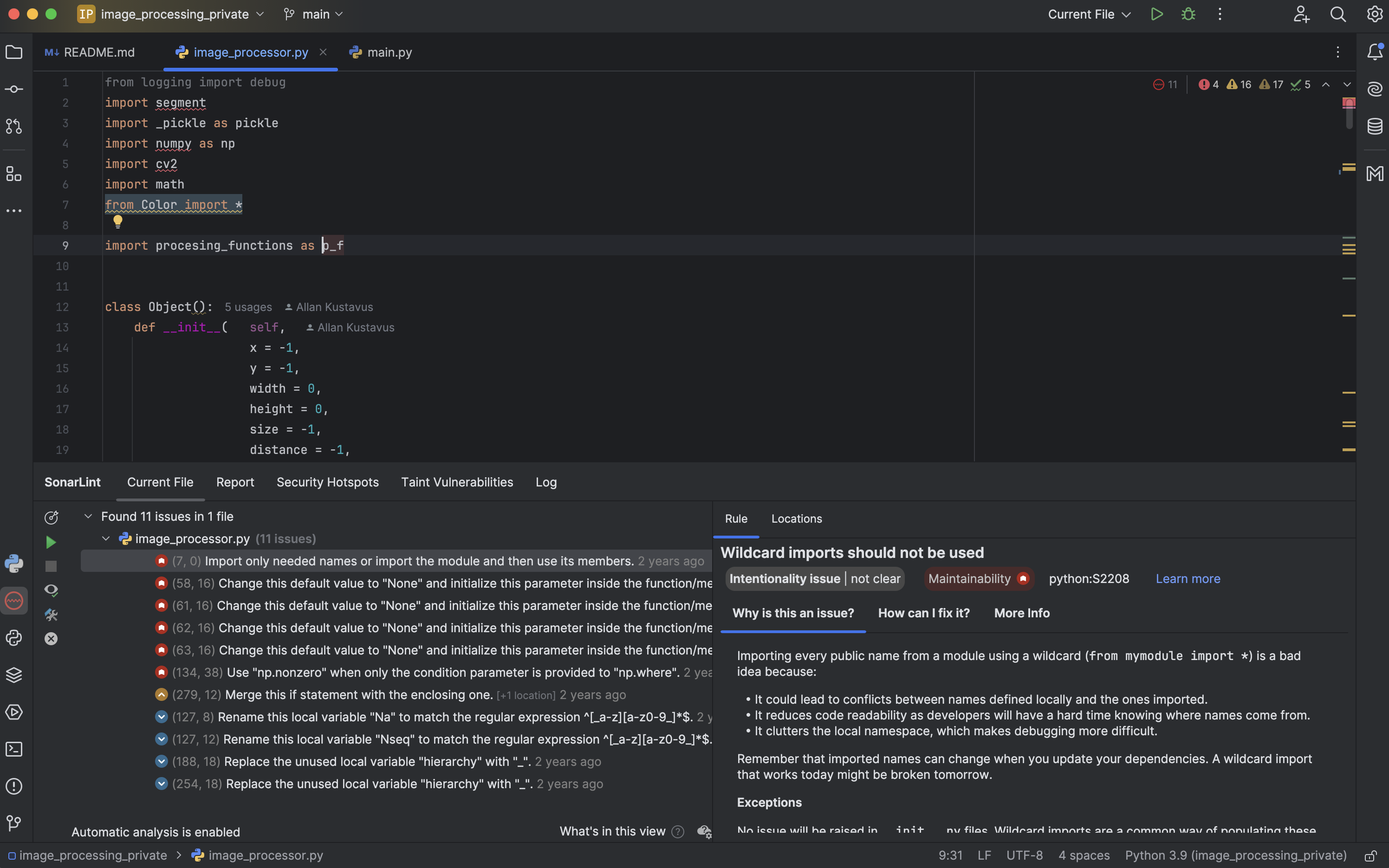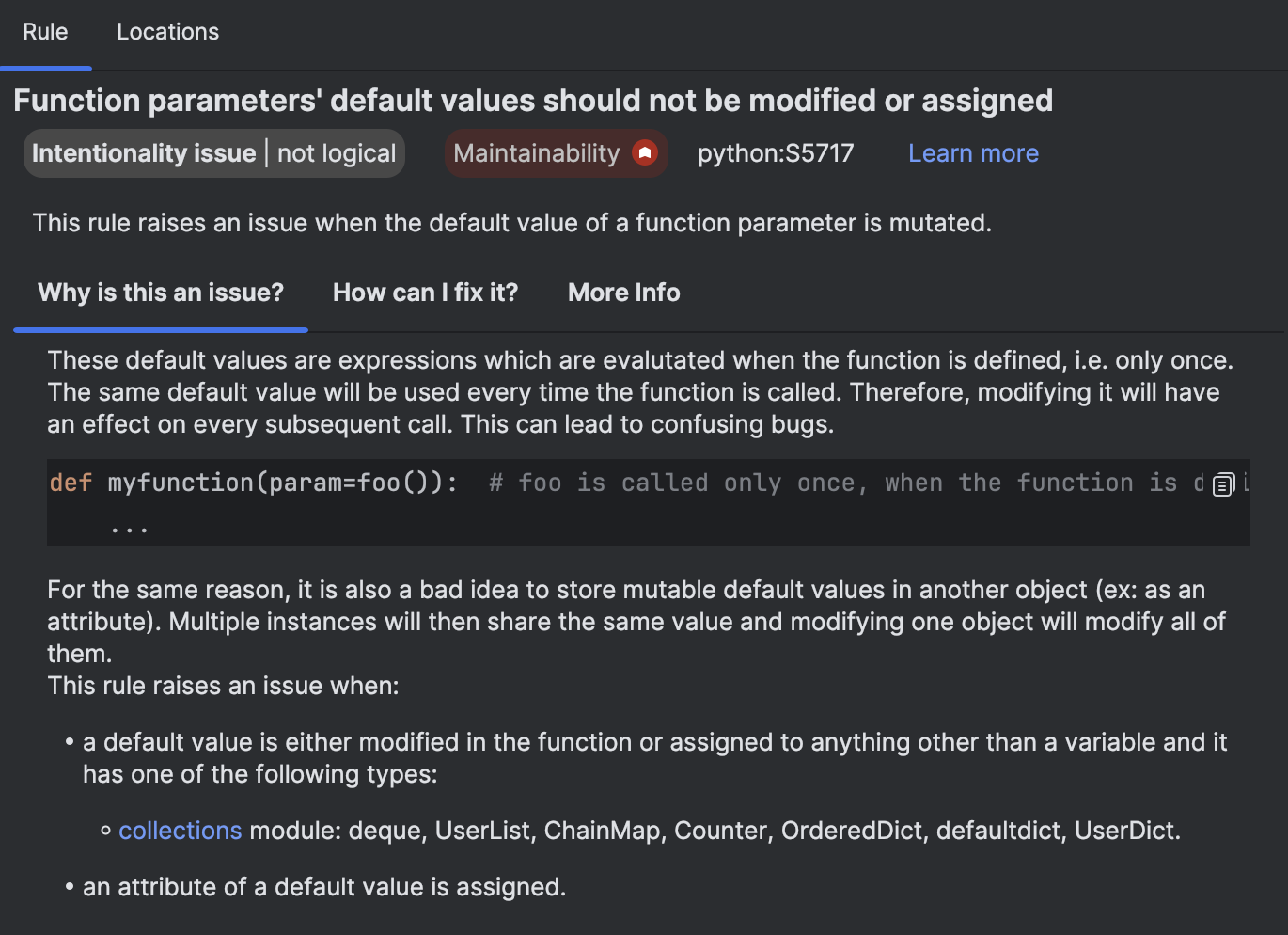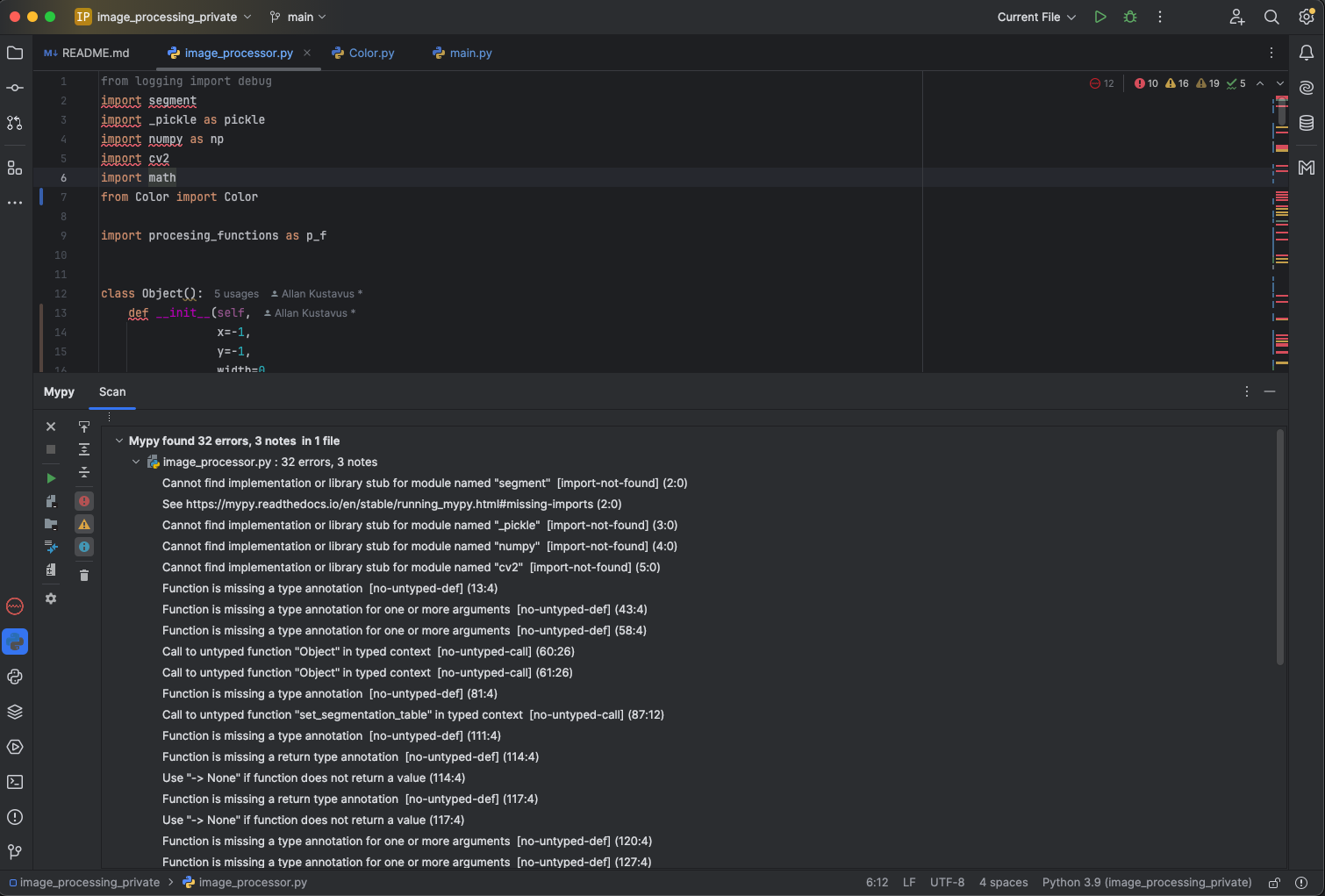Using IDE plugins
There are plugins you can utilize in your development process to increase efficient. This document highlights some of them and provides examples of their usefulness. This document is based on the PyCharm IDE but similar plugins are available for other popular IDE-s, like VS code. If not using PyCharm take the guide as a set of guidelines and adapt them to your IDE-s features
SonarLint
SonarLint is a static code analyzer that helps you write more maintainable code. It highlights issues, small and large, sometimes even suggesting fixes for them. It is a great tool to avoid the usual pitfalls when writing code. You can read more details about it here https://www.sonarsource.com/products/sonarlint/.
Examining issues in a file
SonarLint Scans your open file and highlights issues it discovered. In the plugin drawer you can see details about issues in the file. They are ordered based on severity. When selecting an issue you see additional information about said issues on the right. There the basic nature of the issue is described and fixes are suggested.

Example: Default values on mutable function parameters
This is a usual issue where python assigns function default values once. If this value is modified, then so is the default used everywhere else.
SonarLint provides a handy tip that describes the nature of the issue and sometimes has suggestions as to how to fix it. An example can be seen below when hovering over the issue highlighted in yellow.

Additional information can be seen in the plugin drawer below. It also highlights other issues that are in the file you are working on. We can see quite a few highlighted issues:

When clicking on the issue, you can see more details about the issue on the right. It can give you hints as to how to resolve the issue:

Some issues can be resolved automatically by clicking on the SonarLint suggested fix. In this case it suggests us to initialize the parameter. Clicking on it modifies your code.

The plugin modifies your code, resulting in new code, like so:

Mypy
Mypy is a static type checker for Python. It extends python functionality to combine dynamic and static typing. This allows to avoid issues with mixed types where code logic can be affected by wrong but non-erroneous input types. As an example this can happen when passing a float as a function parameter requiring an integer.
Setup
Installing Mypy is simple, you can install it with your favorite Python package manager, pip for example:
python3 -m pip install mypyAfter that you can run the checker via command line:
mypy program.pyor you can install a Mypy plugin for your IDE.
Code examples
We have code that prints the input to console. It is designed to only handle strings as inputs.
def say_hello(name):
return "Hello " + name
# This call will fail because Python does not allow
# to add a string and a number
print(say_hello(123))
# This call succeeds and prints out the string "Hello Juku"
print(say_hello("Juku"))Now we will convert this code to use typing:
def say_hello(name: string) -> string:
return "Hello " + name
# Now Mypy displays an error here because there is a argument type missmatch
# Argument 1 to "say_hello" has incompatible type "int"; expected "str"
print(say_hello(123))
# This call succeeds and prints out "Hello Juku"
print(say_hello("Juku"))Additionally, the type definitions allow to detect illegal operations inside functions:
# Here we multiply two strings. This is an illegal action that Mypy picks up on.
# Unsupported operand types for * ("str" and "str")
def wrong_say_hello(name: str) -> str:
return 'Hello ' * nameType detection also works on more complex and nested data structures like lists and dictionaries:
def greet_people(names: list[str]) -> None:
for name in names:
print('Hello ' + name)
# Works fine since we expect a list of strings
greet_people(["Juku", "Juhan", "Pille"])
# Error due to wrong type
greet_people([1, 2, 3])You can also utilize types from external libraries:
from pathlib import Path
def load_template(template_path: Path, name: str) -> str:
# Mypy knows that `template_path` has a `read_text` method that returns a str
template = template_path.read_text()
# ...so it understands this line type checks
return template.replace('USERNAME', name)Some more complex libraries that, for example are missing type hints, may require additional plugins. You might need to declare stub files that describe the libraries expected input and output types. Info about how to do it can be found here https://mypy.readthedocs.io/en/stable/stubs.html#stub-files. Numpy, for example, has a plugin for Mypy support that can be read up on here https://numpy.org/devdocs/reference/typing.html.
Different Mypy features can also be configured using a configuration file. A reference guide can be found here https://mypy.readthedocs.io/en/stable/config_file.html.
IDE plugins
For IDE support, I suggest using the Mypy plugin by Roberto Leinardi that can be found here https://plugins.jetbrains.com/plugin/11086-mypy. It helps with real time and on-demand scanning of your project files so you don’t forget to do it.
If you commit to using Mypy, I suggest setting it to strict and following its guidelines. It helps you write more maintainable and error resistant code.
